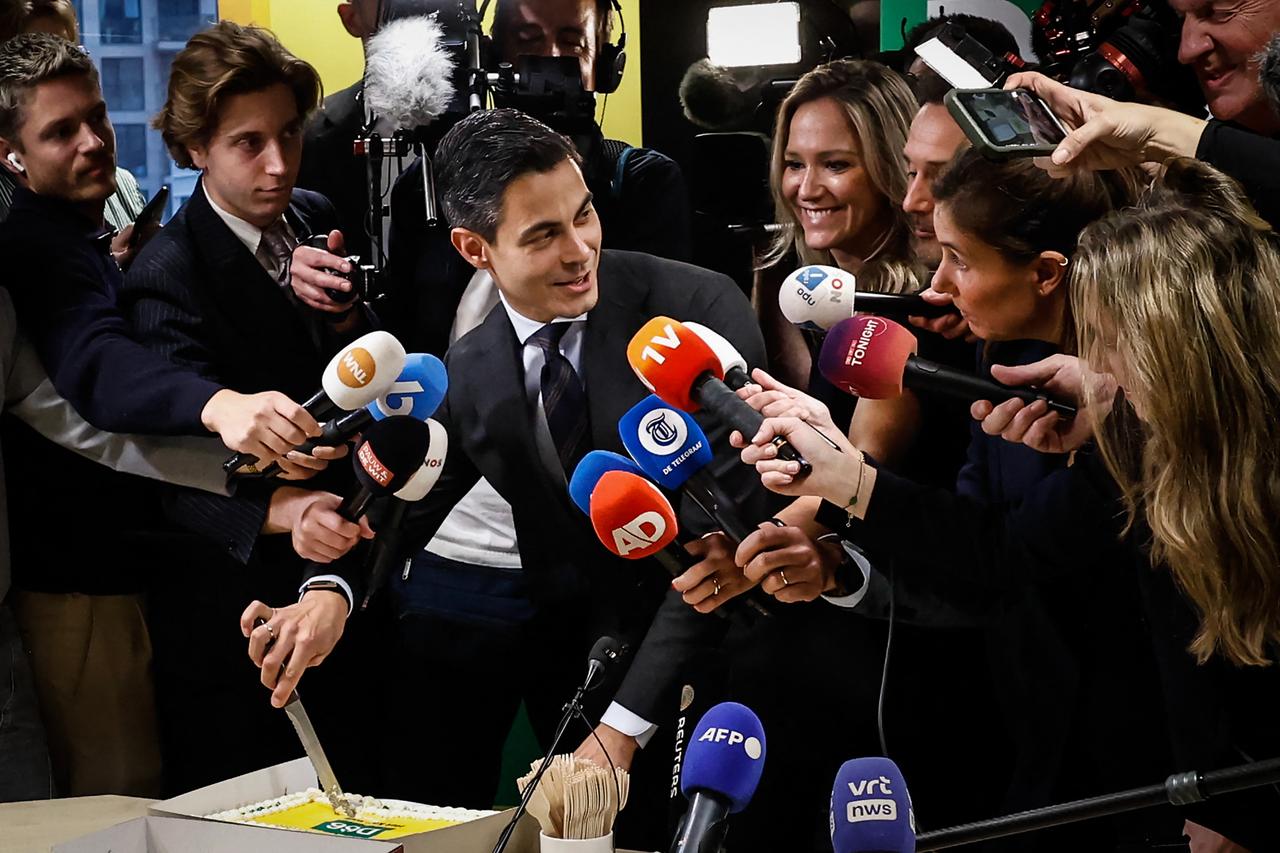
The Netherlands’ highly anticipated election produced one of the closest finishes in recent political history, with centrist party D66 taking a razor-thin lead over Geert Wilders’ far-right PVV as nearly all votes were counted.
Dutch news agency ANP projected D66 ahead by just over 15,000 votes on Friday, a margin so tight that one remaining constituency and a large number of overseas ballots could still shift seat allocations.
Major outlets, including public broadcaster NOS, immediately cited ANP’s figures.
If the projection holds, D66 leader Rob Jetten is positioned to become the youngest prime minister of the European Union’s fifth-largest economy.
However, the result ushers in a new phase of uncertainty rather than clarity.
Dutch politics now moves into a lengthy process of coalition negotiations that, analysts warn, could stretch well into next year.
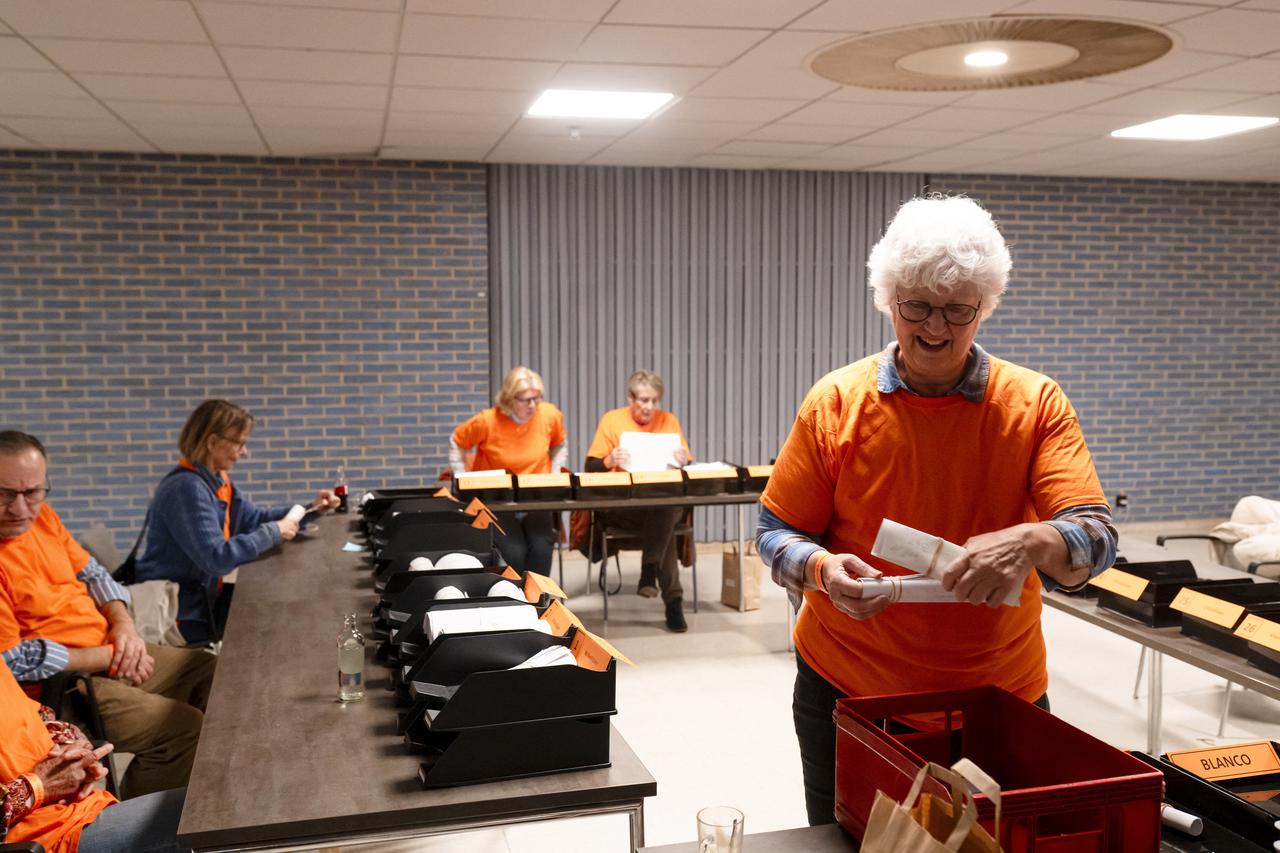
The final result reportedly hinges on two key outstanding counts.
In 2023, D66 outscored the PVV among expatriates by nearly 3,000 votes. The electoral council will not announce the official outcome until Tuesday, after all overseas votes delivered on time to The Hague are included.
NRC reported that over 135,000 Dutch citizens abroad registered to vote this year. Analysts note that D66 historically receives disproportionate support from this group.
NRC’s analysis shows the party currently falling about 12,000 votes short of securing the final available seat, which could change the overall result.
If overseas votes push D66 ahead enough to secure that seat, the party would rise to 27, becoming the undisputed largest faction in parliament.
That outcome would be politically significant and could reshape coalition calculations.
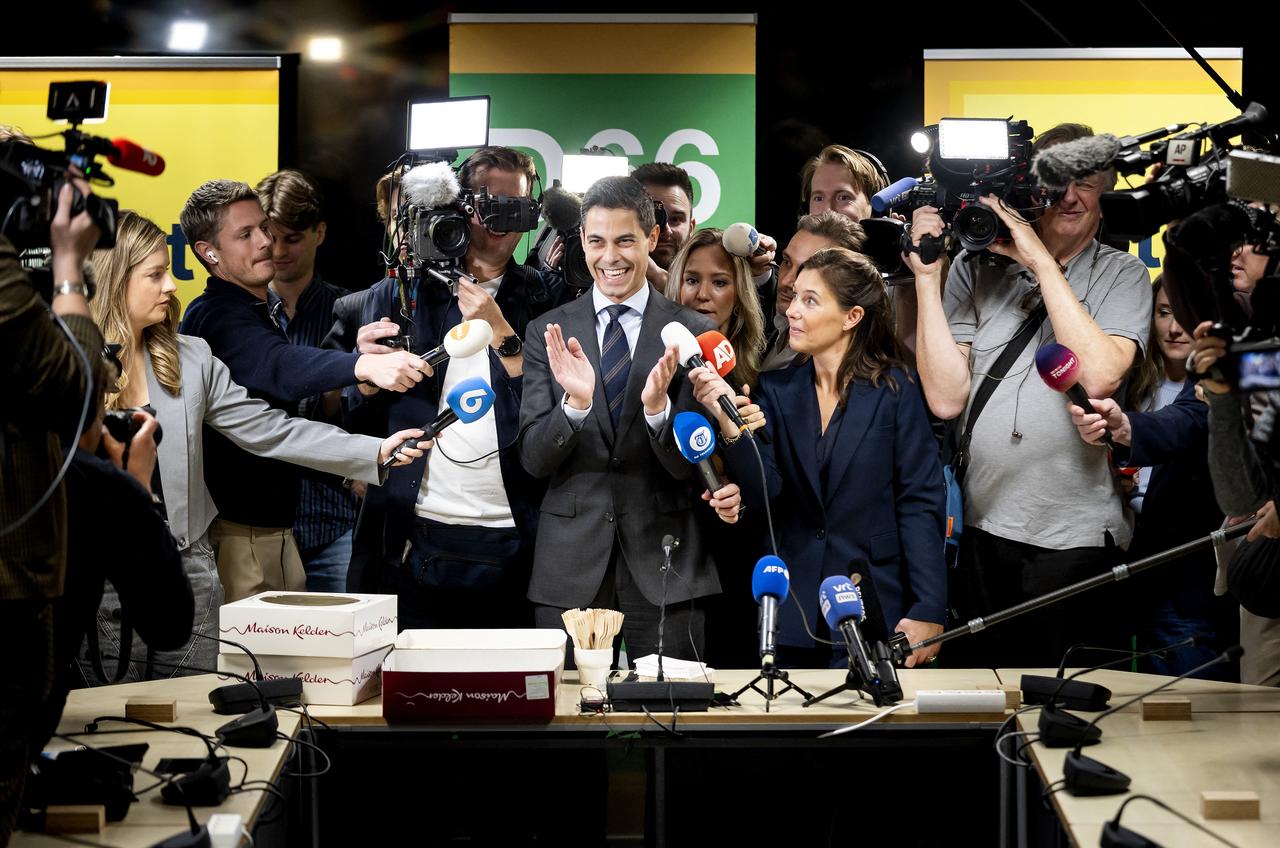
Beyond the close finish, the election marks a broader shift. NRC describes the projected result as a “comeback of the political center” after the collapse of the short-lived experiment with a radical-right-supported government.
D66’s leap from nine seats to a projected 26 is one of the most dramatic turnarounds in recent Dutch elections.
It reflects a late surge for Jetten, who entered the campaign trailing in the polls and struggling to assert himself in the race for the premiership.
According to NRC’s reporting, D66’s rise came from an almost flawless final campaign stretch. Ipsos I&O research cited by NRC found that voters increasingly valued Jetten’s calm and constructive tone during the debates.
He gained traction after shifting the party’s messaging toward core voter concerns such as housing, healthcare, and migration, while adopting a firmer, more center-right tone on immigration.
In a symbolic departure from the party’s past reluctance to lean on national imagery, D66 embraced the Dutch flag during events, with Jetten giving his election-night address in Leiden against a backdrop of enthusiastic supporters and national colors.
“Millions of Dutch people turned the page today and said goodbye to the politics of negativity and hate,” he told the crowd, casting the result as a rejection of the confrontational style associated with Wilders.
His stance as the anti-Wilders candidate appears to have resonated among voters who sought stability after months of political volatility.
The centrist resurgence was not limited to D66. The CDA, under leader Henri Bontenbal, recorded one of its strongest recoveries in decades, jumping from five to 18 seats.
Once deemed at risk of political irrelevance, the party has re-entered the center of Dutch politics with renewed strength.
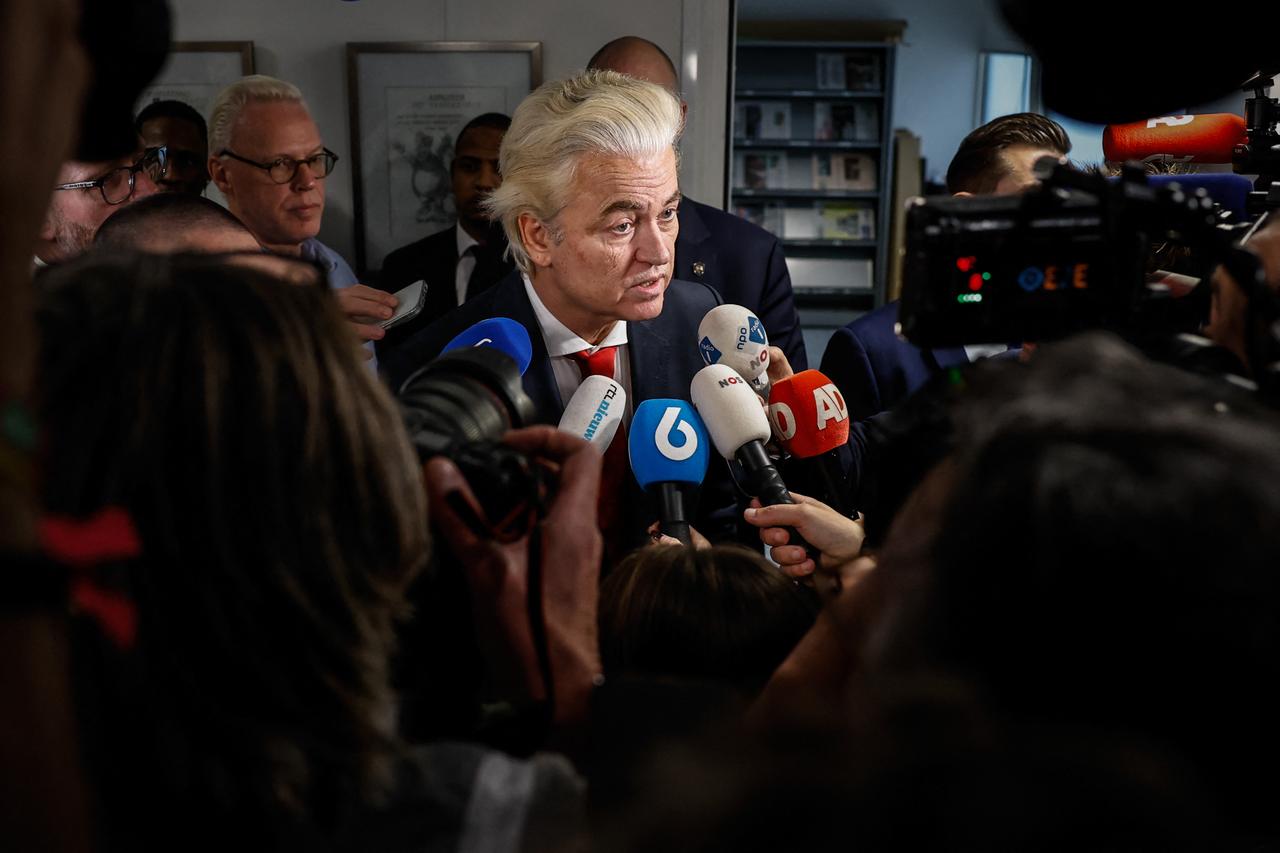
The election delivered an interesting outcome for the far right, as Wilders’ PVV suffered a major setback, losing an estimated 11 seats compared with its current position in parliament.
Although ANP’s projection still places the PVV at 26 seats, tied with D66 in numerical terms, the political reality is unchanged: every major party has ruled out forming a government with Wilders. Even if he overtook Jetten in the final vote count, he would have no viable path to the premiership.
However, the broader radical-right bloc remains stable. The Forum for Democracy (FvD) more than doubled its representation, rising from three to seven seats. The hard-right JA21 made its most substantial gain since entering parliament, jumping from one seat to nine.
Both parties benefited from the PVV’s losses. JA21 in particular emerged as a significant winner among voters seeking a more structured and “conservative liberal” alternative to Wilders.
Yet these gains do not ease the far right’s isolation. Wilders himself dismissed cooperation with FvD, calling them “too extreme.”
And without mainstream partners, none of the radical-right factions can reach a majority in the Dutch multiparty system, where coalition rule is the norm and where exclusion of the PVV remains a consistent stance.
The election also punished parties associated with the outgoing Schoof government. NRC reports that the PVV, VVD, NSC and BBB collectively lose 36 seats.
NSC, which exploded onto the scene with 20 seats in 2023 under Pieter Omtzigt, disappears entirely. BBB shrinks from 7 seats to 4.
The VVD, under Dilan Yesilgoz, drops from 24 to 22, but the party considers the result a relief after months of dire polling numbers.
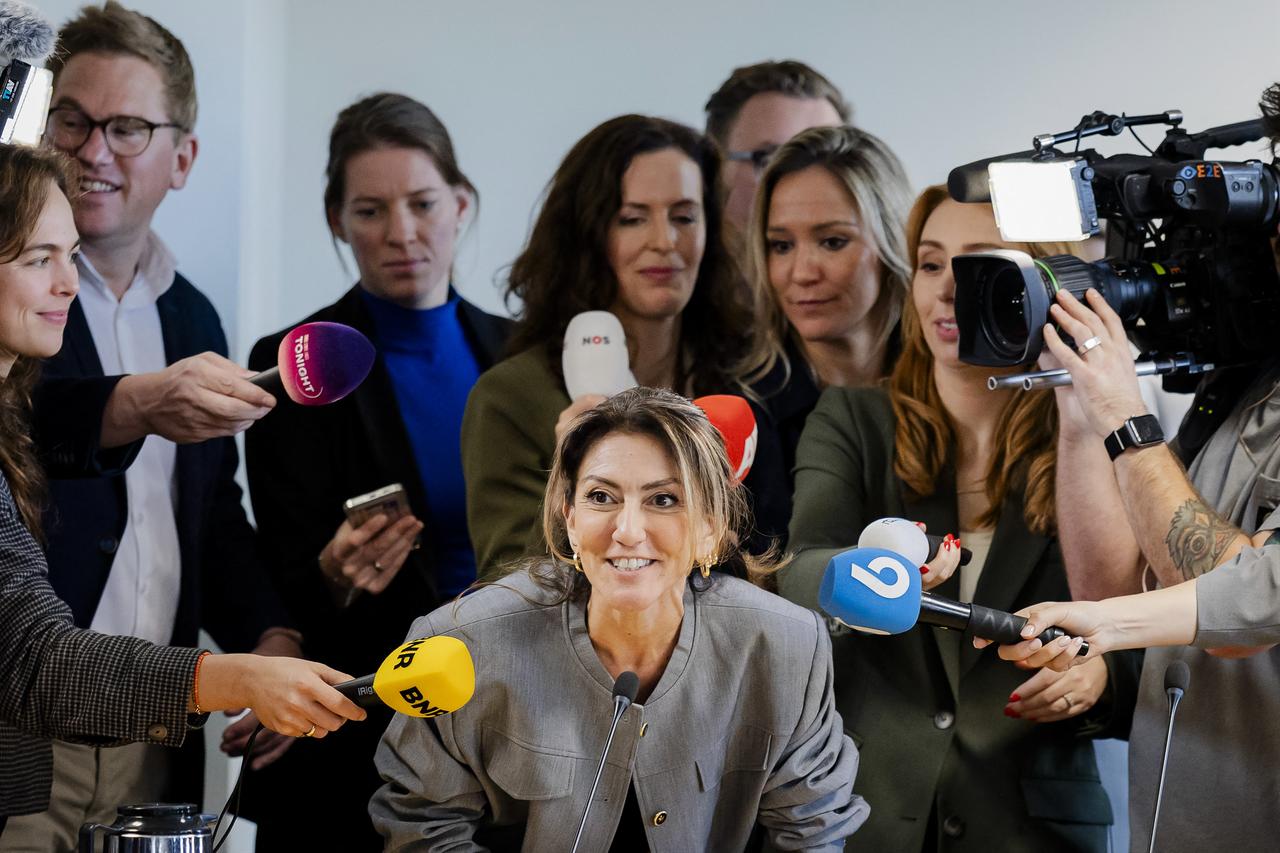
With the vote count nearly complete, political attention turns to the mechanics of coalition formation.
The Dutch system requires 76 seats in the 150-seat parliament to form a majority, and this year’s fragmented result leaves only a few viable configurations.
The most stable path, based on seat projections cited by AFP and NRC, is a broad centrist coalition of
Together, they would control 86 seats, but internal tensions are significant. Yesilgoz said before the vote that a partnership with Green/Labor “would not work,” expressing a clear preference for a center-right coalition.
Green/Labor faces its own leadership transition after Frans Timmermans stepped down on election night, creating uncertainty about the party’s appetite for government participation so soon after a painful loss of five seats.
Another option, favored by the VVD, is a center-right combination of D66, VVD, CDA and JA21.
NRC reports that this grouping currently reaches 75 seats, one short of a majority. It would require additional support, potentially from the BBB, to pass the 76-seat threshold. Such an arrangement would be politically difficult for D66 because of major policy differences with JA21, especially on climate and migration.
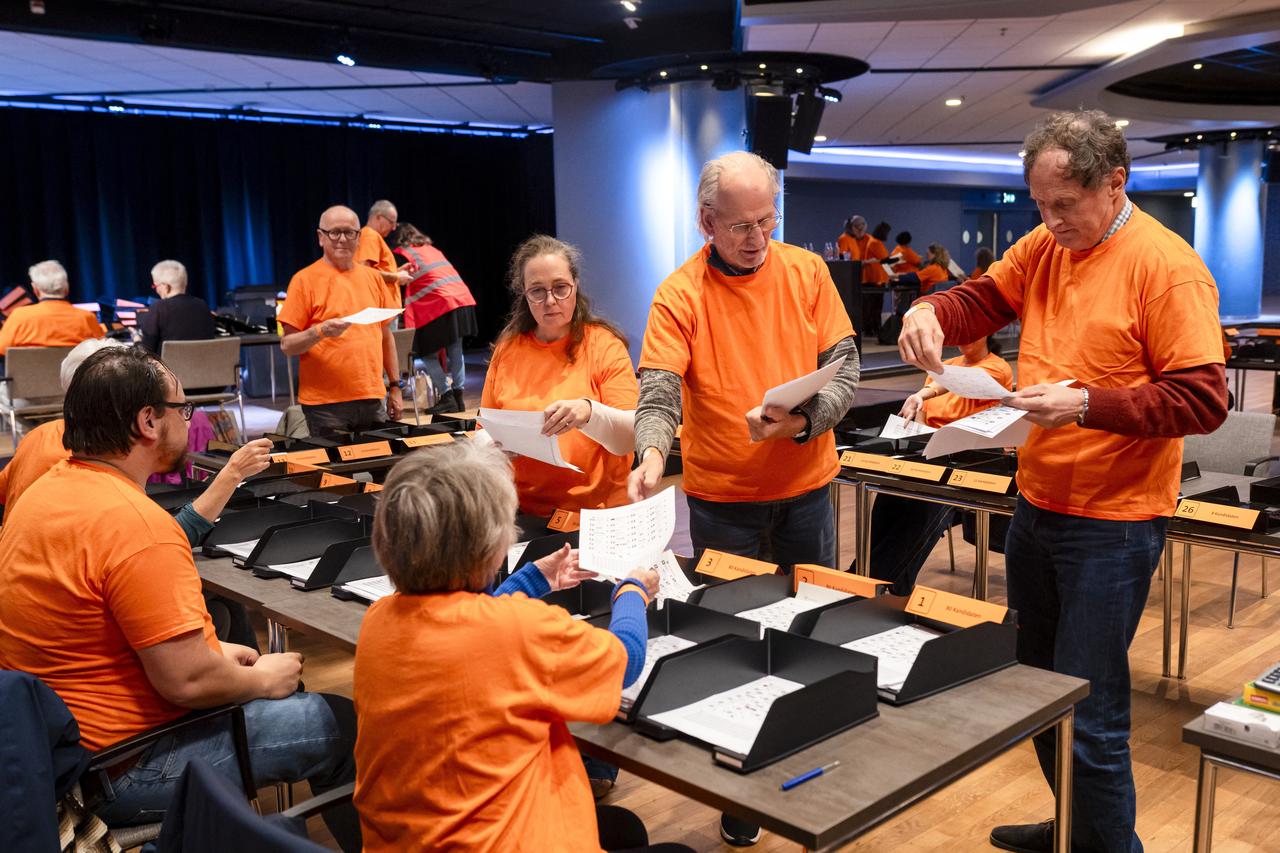
If D66 secures the overseas-boosted final seat and becomes the formal largest party, it would choose the “scout” who launches exploratory coalition talks.
That initial decision shapes the opening of negotiations, the appointment of the informateur who tests possible combinations, and ultimately the formateur, almost always the leader of the largest party, who attempts to form a government.
Agence France-Presse (AFP) notes that the last government took 223 days to form, and experts expect this process to be equally drawn out. Sarah de Lange of Leiden University told AFP that compromises between four ideologically distant parties would be “very challenging,” estimating a timeline of “anywhere between six months and a year.”
In the meantime, caretaker prime minister Dick Schoof remains in office with full administrative capacity. “I expect I will still be PM at Christmas,” he said on Friday.
Dutch caretaker governments can pass budgets and amend legislation, ensuring that the state continues to function without interruption.